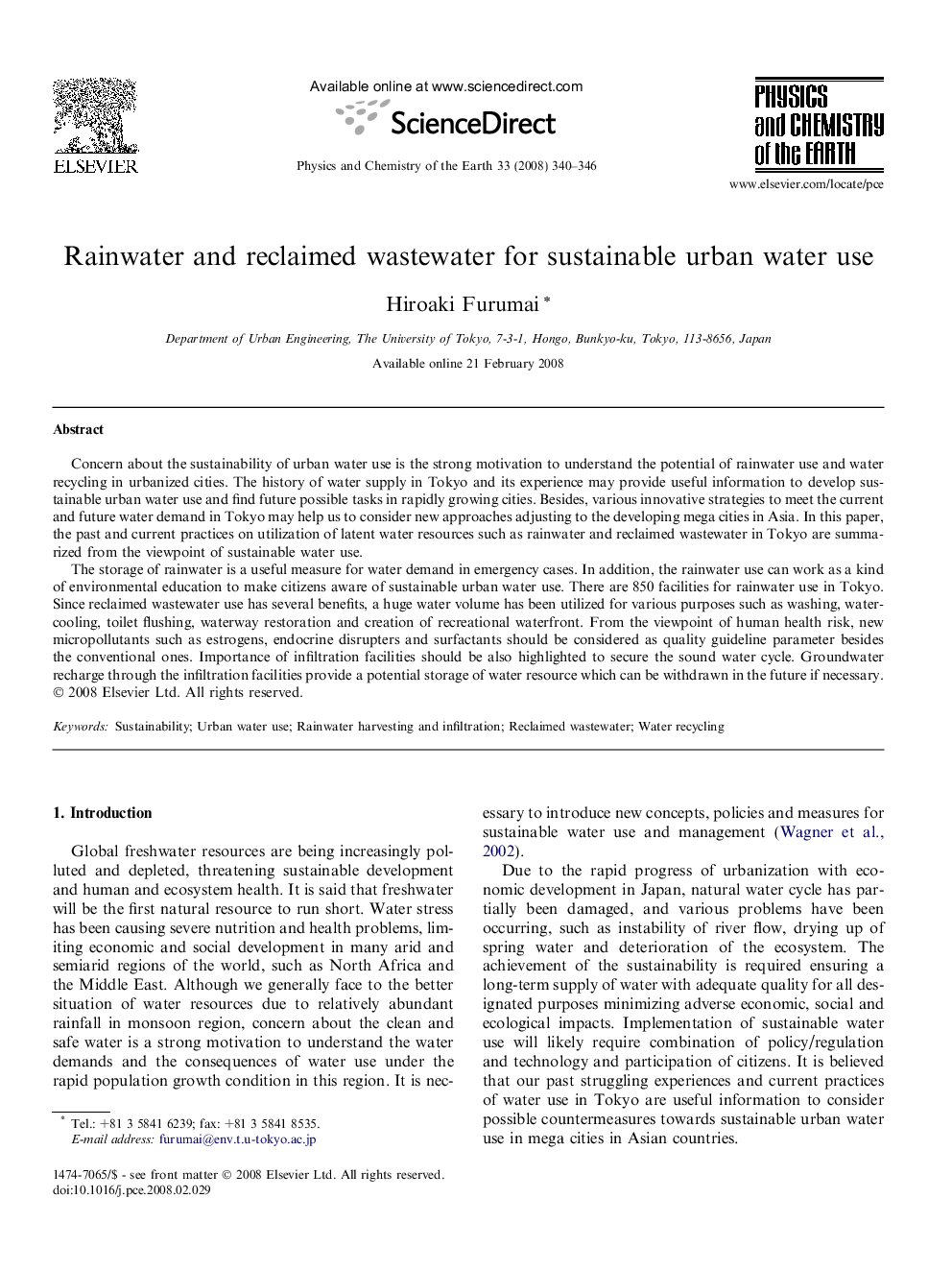| Article ID | Journal | Published Year | Pages | File Type |
|---|---|---|---|---|
| 4722069 | Physics and Chemistry of the Earth, Parts A/B/C | 2008 | 7 Pages |
Concern about the sustainability of urban water use is the strong motivation to understand the potential of rainwater use and water recycling in urbanized cities. The history of water supply in Tokyo and its experience may provide useful information to develop sustainable urban water use and find future possible tasks in rapidly growing cities. Besides, various innovative strategies to meet the current and future water demand in Tokyo may help us to consider new approaches adjusting to the developing mega cities in Asia. In this paper, the past and current practices on utilization of latent water resources such as rainwater and reclaimed wastewater in Tokyo are summarized from the viewpoint of sustainable water use.The storage of rainwater is a useful measure for water demand in emergency cases. In addition, the rainwater use can work as a kind of environmental education to make citizens aware of sustainable urban water use. There are 850 facilities for rainwater use in Tokyo. Since reclaimed wastewater use has several benefits, a huge water volume has been utilized for various purposes such as washing, water-cooling, toilet flushing, waterway restoration and creation of recreational waterfront. From the viewpoint of human health risk, new micropollutants such as estrogens, endocrine disrupters and surfactants should be considered as quality guideline parameter besides the conventional ones. Importance of infiltration facilities should be also highlighted to secure the sound water cycle. Groundwater recharge through the infiltration facilities provide a potential storage of water resource which can be withdrawn in the future if necessary.
